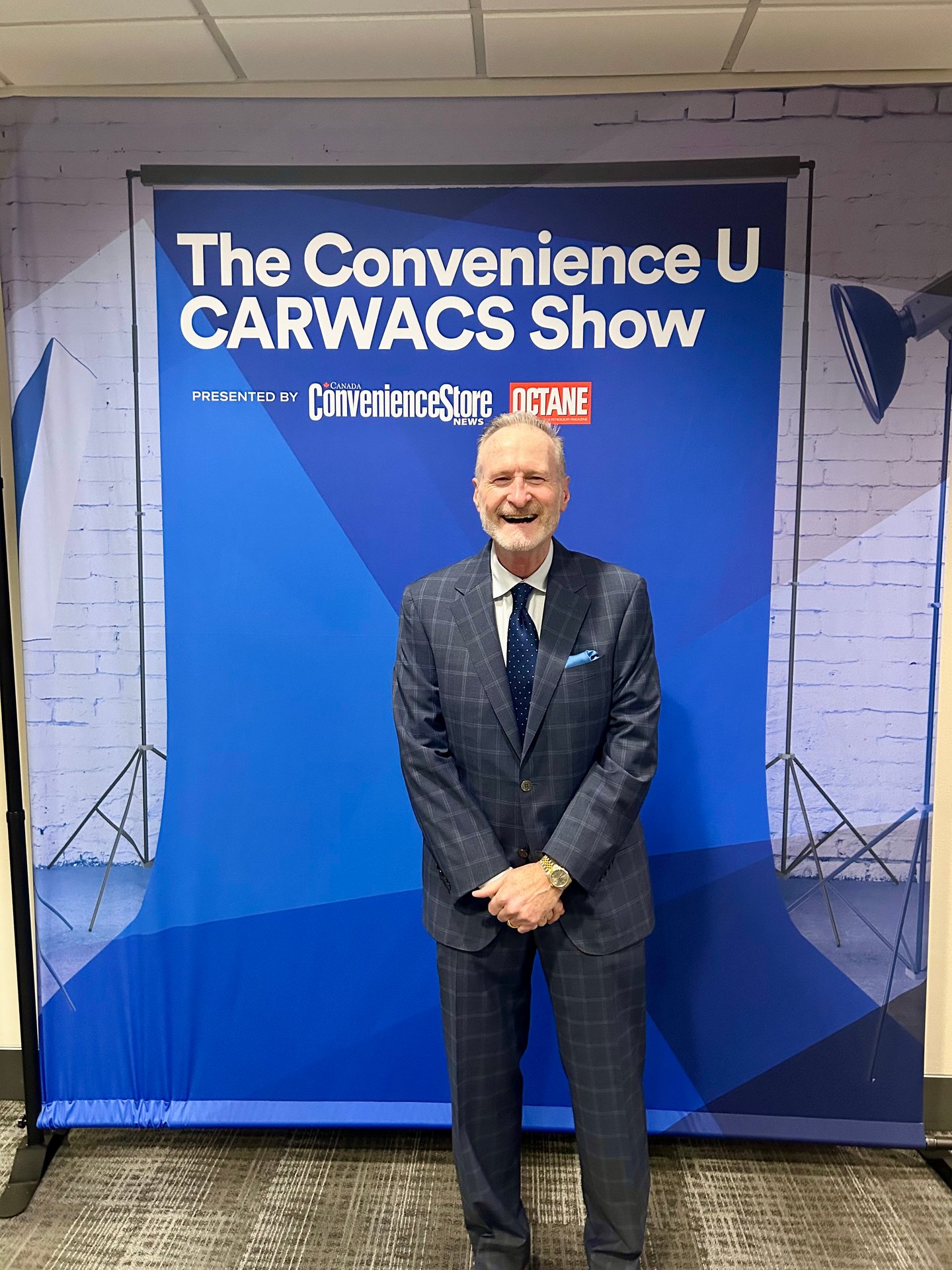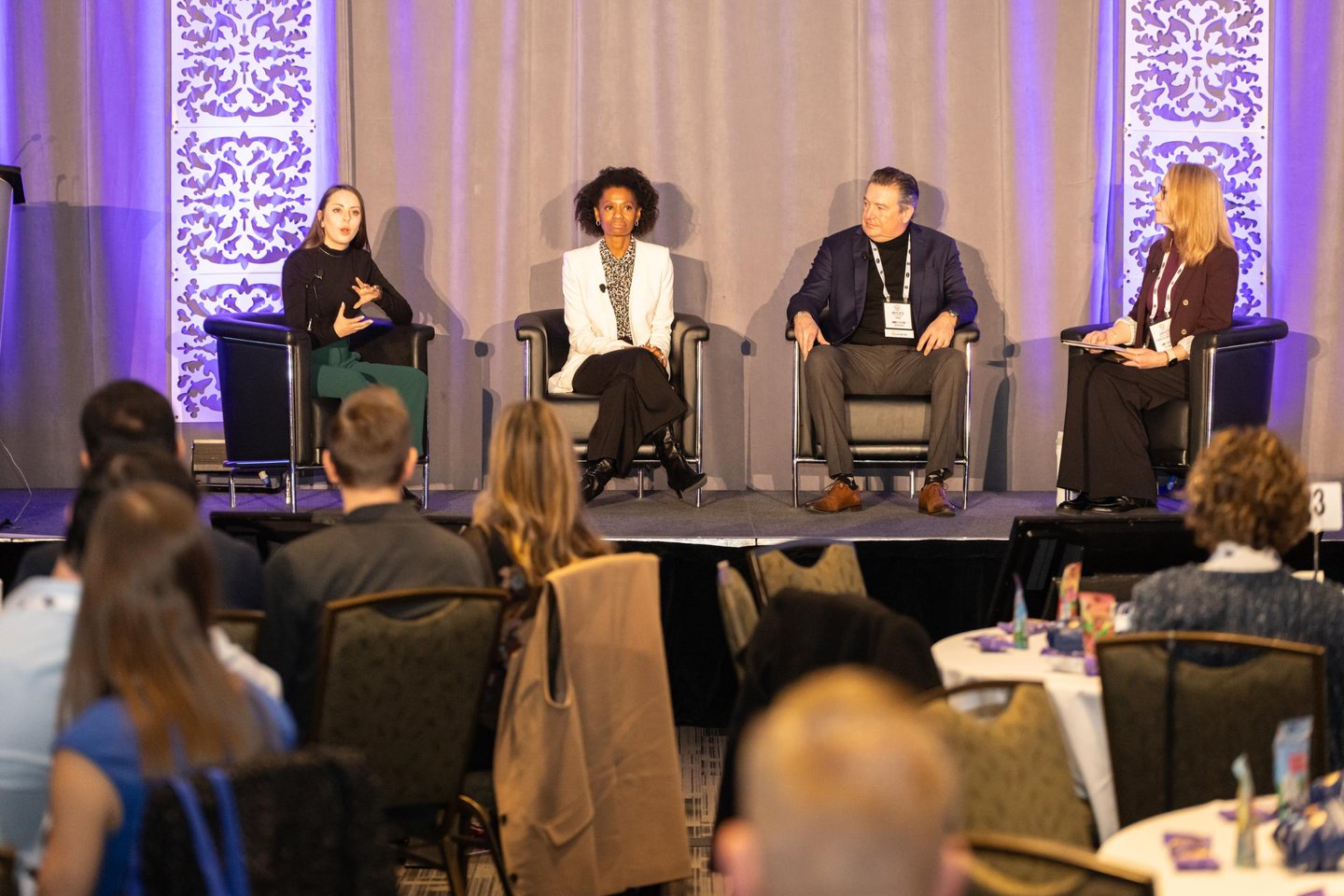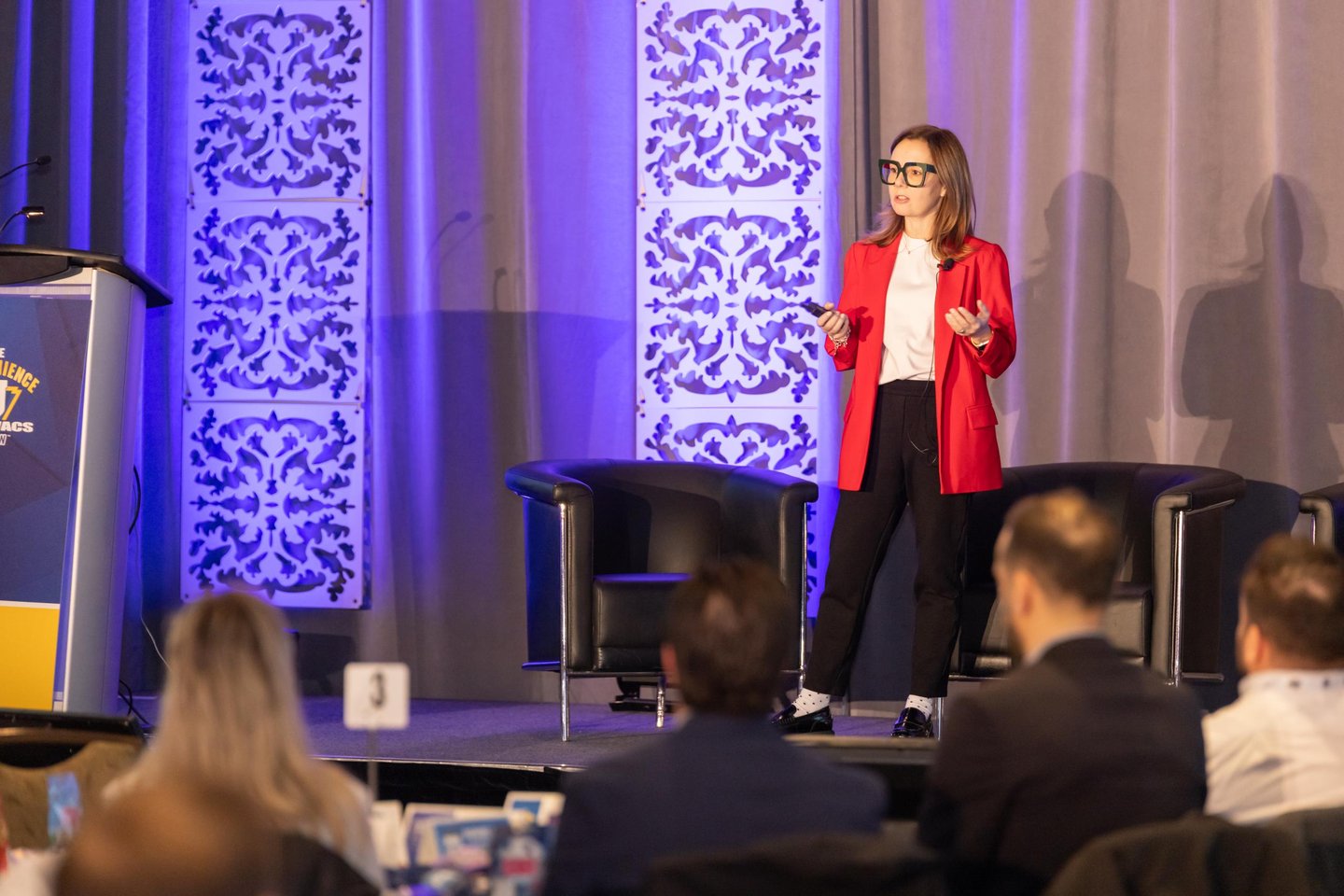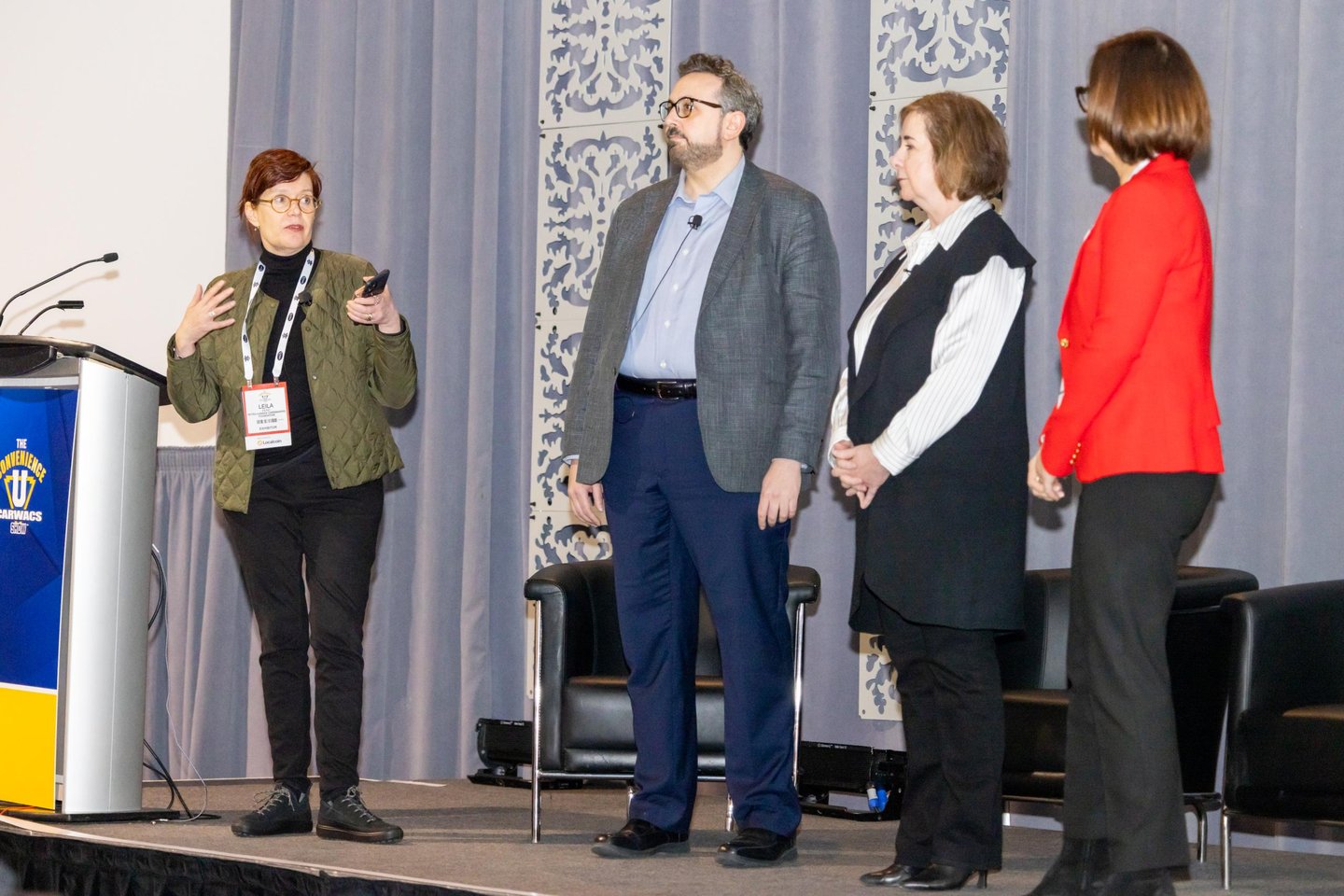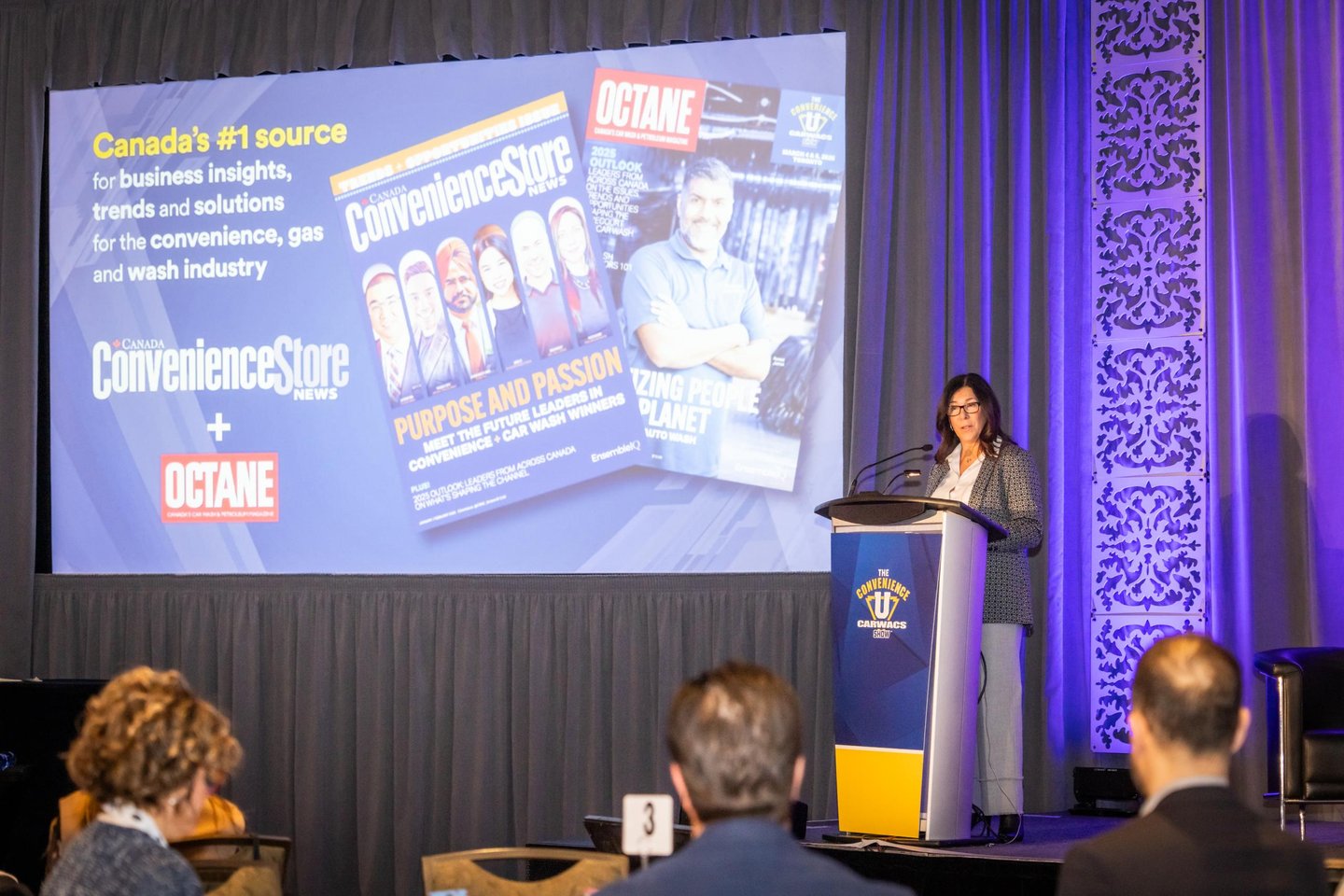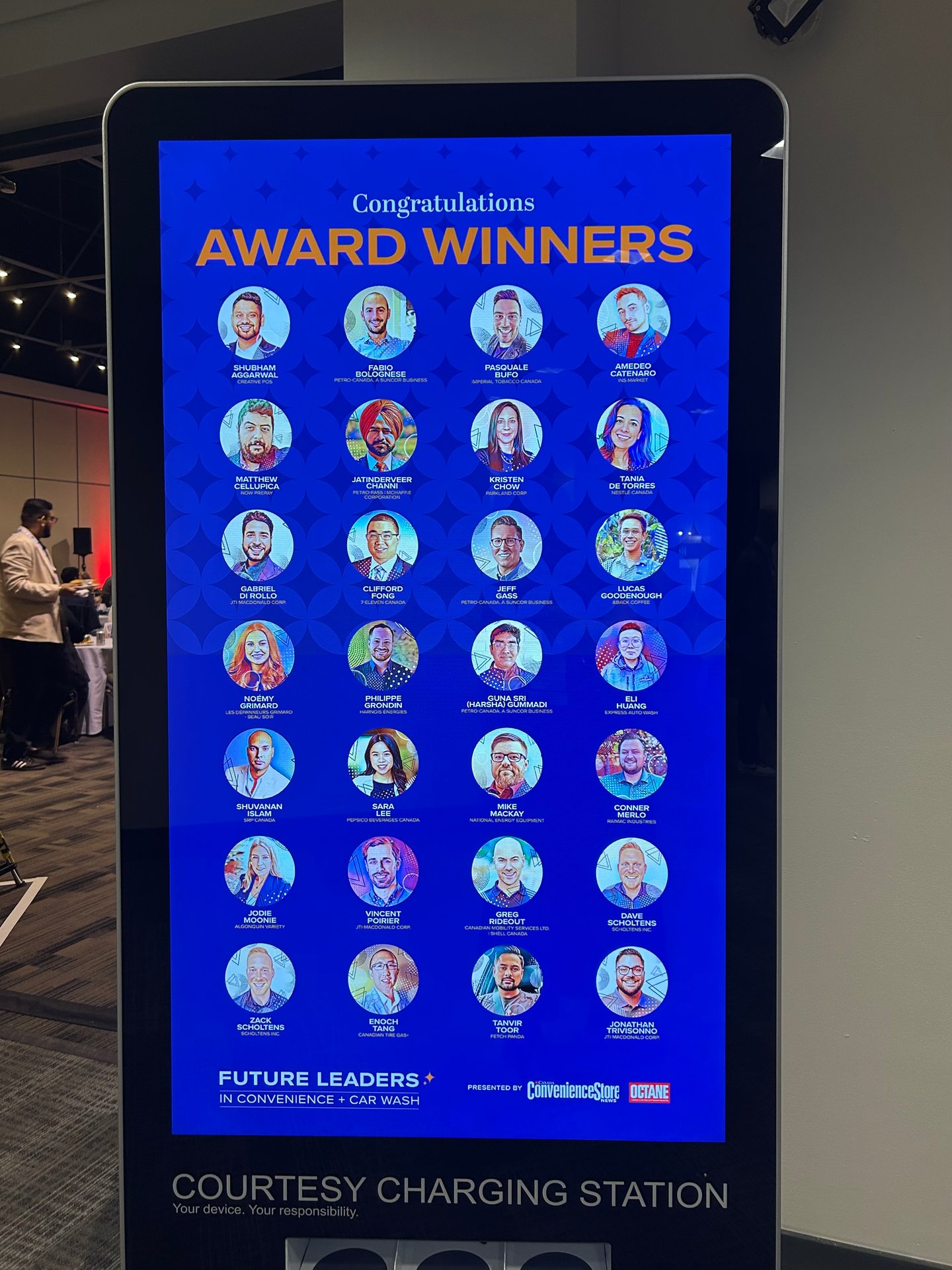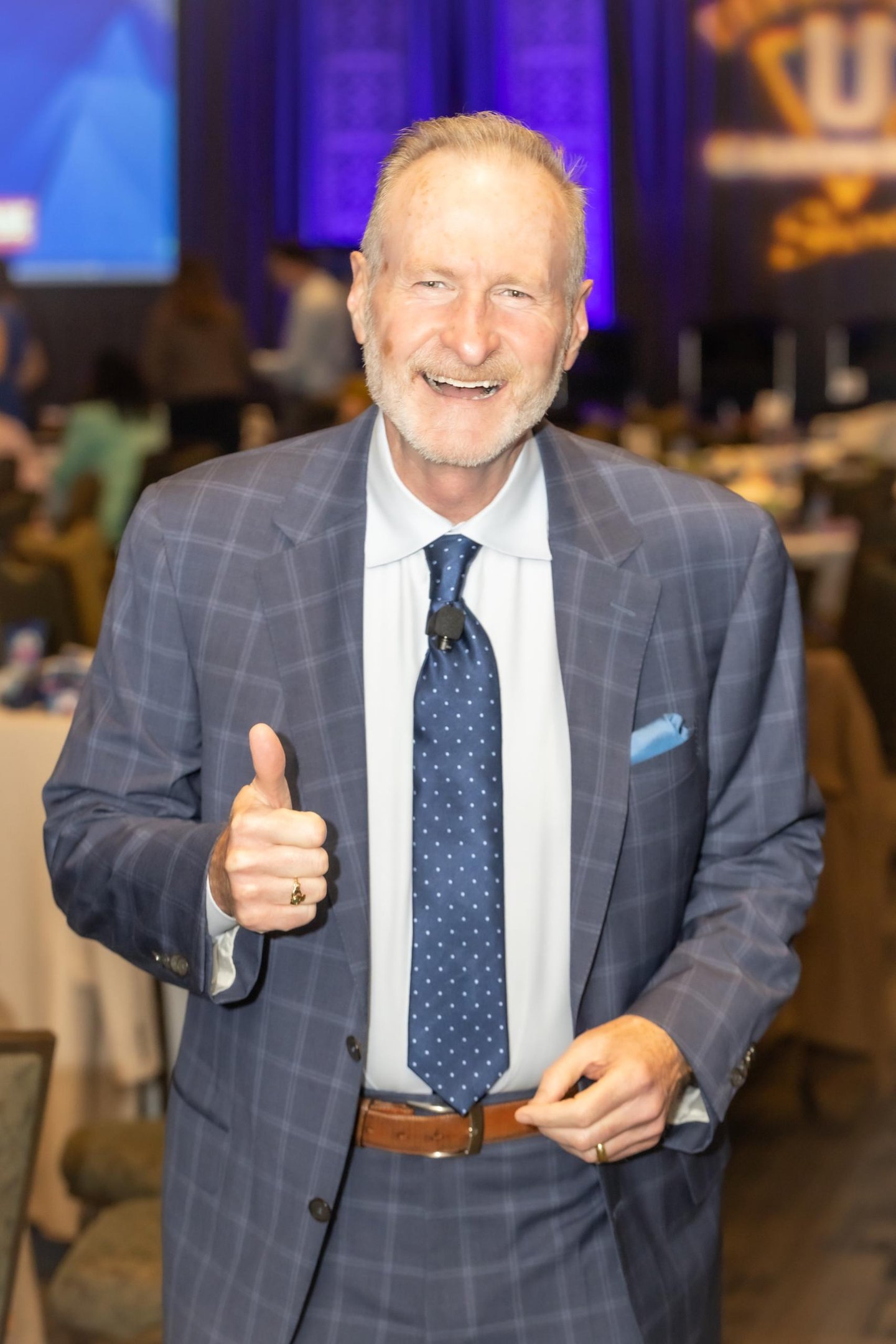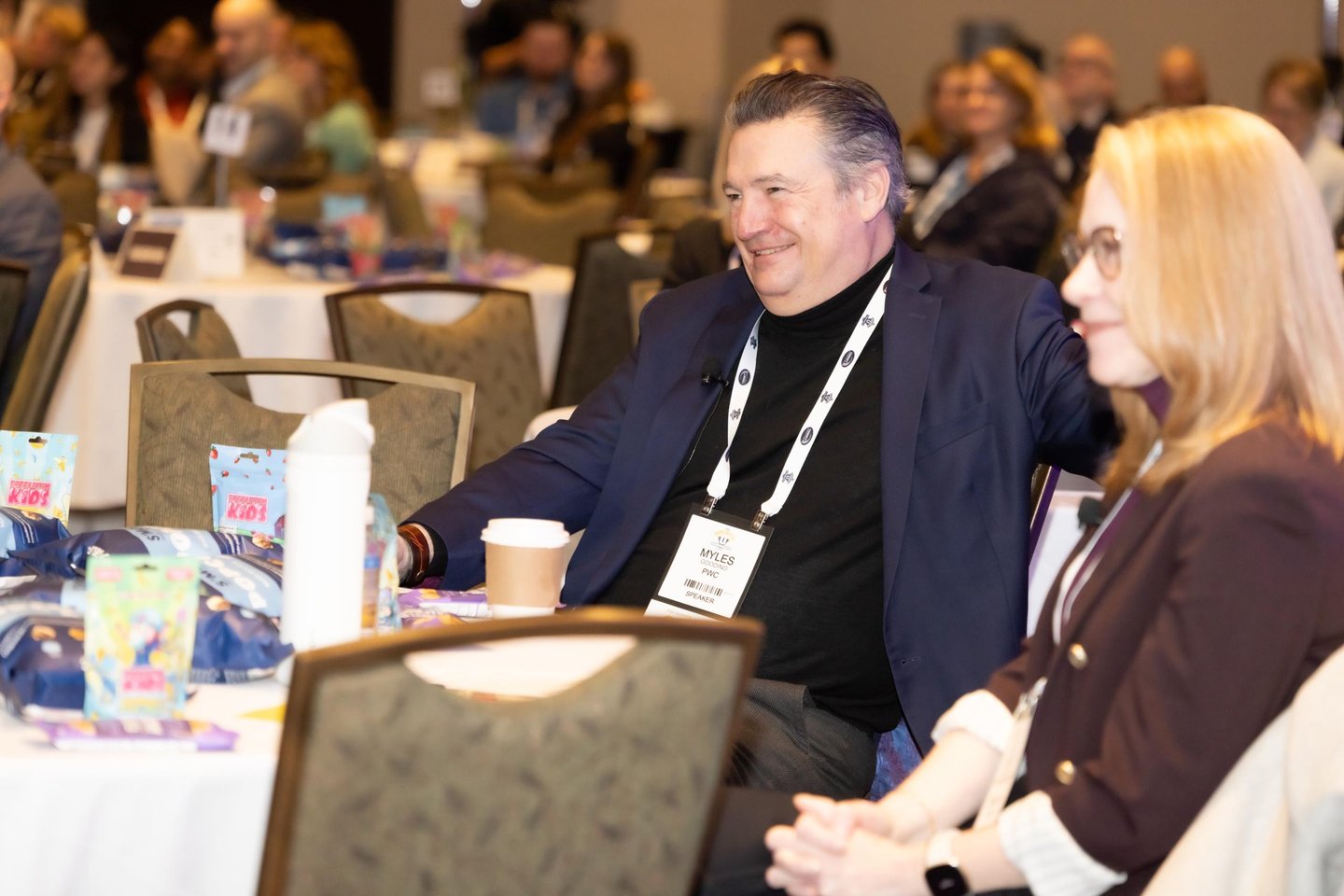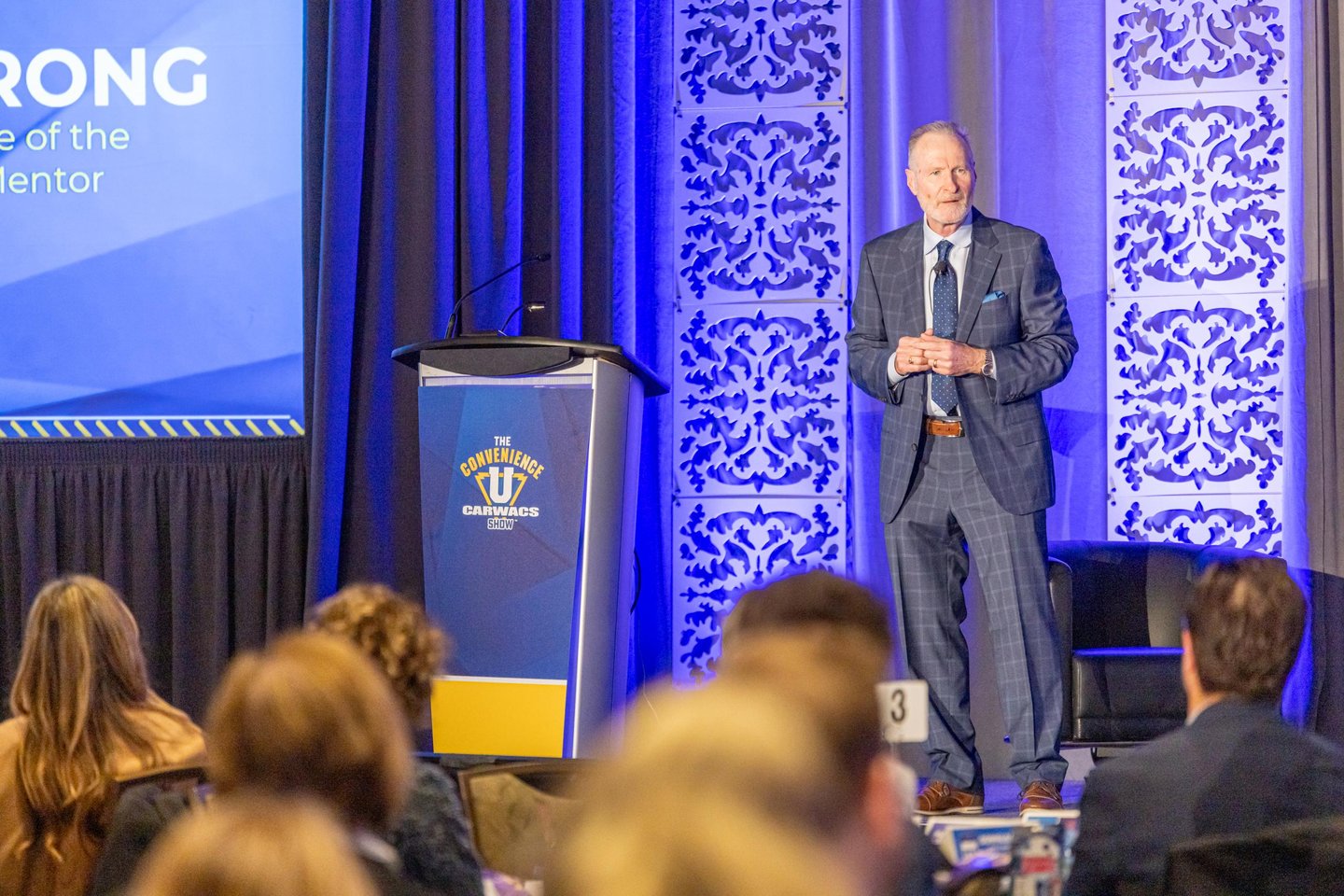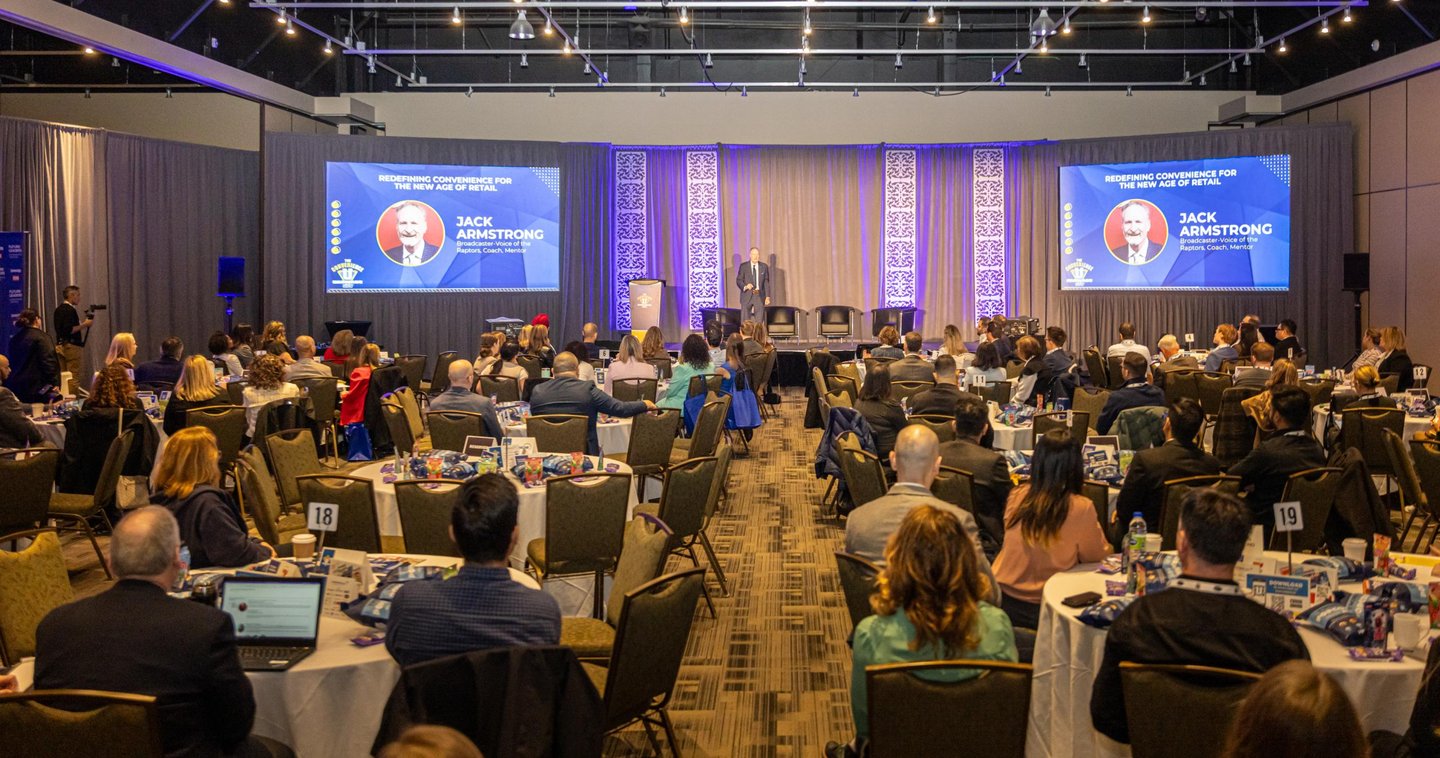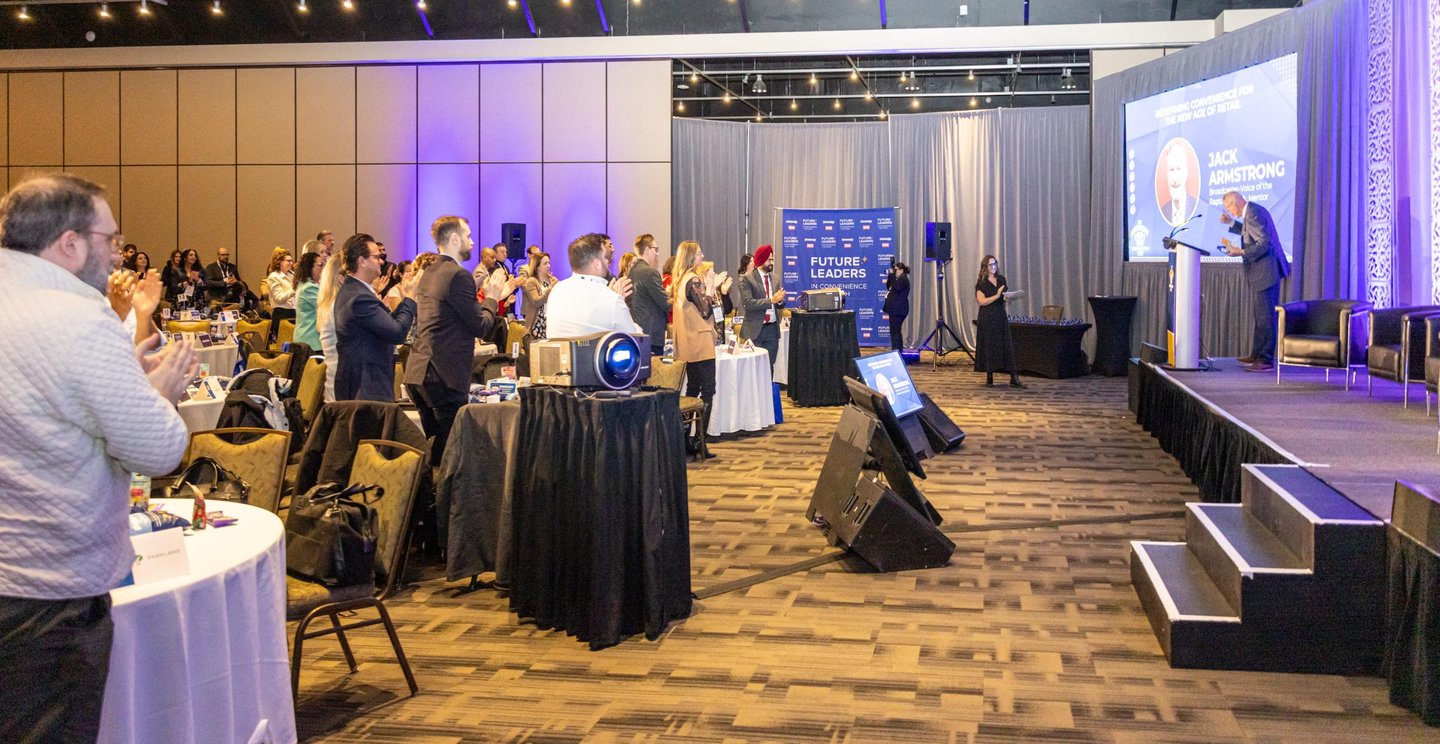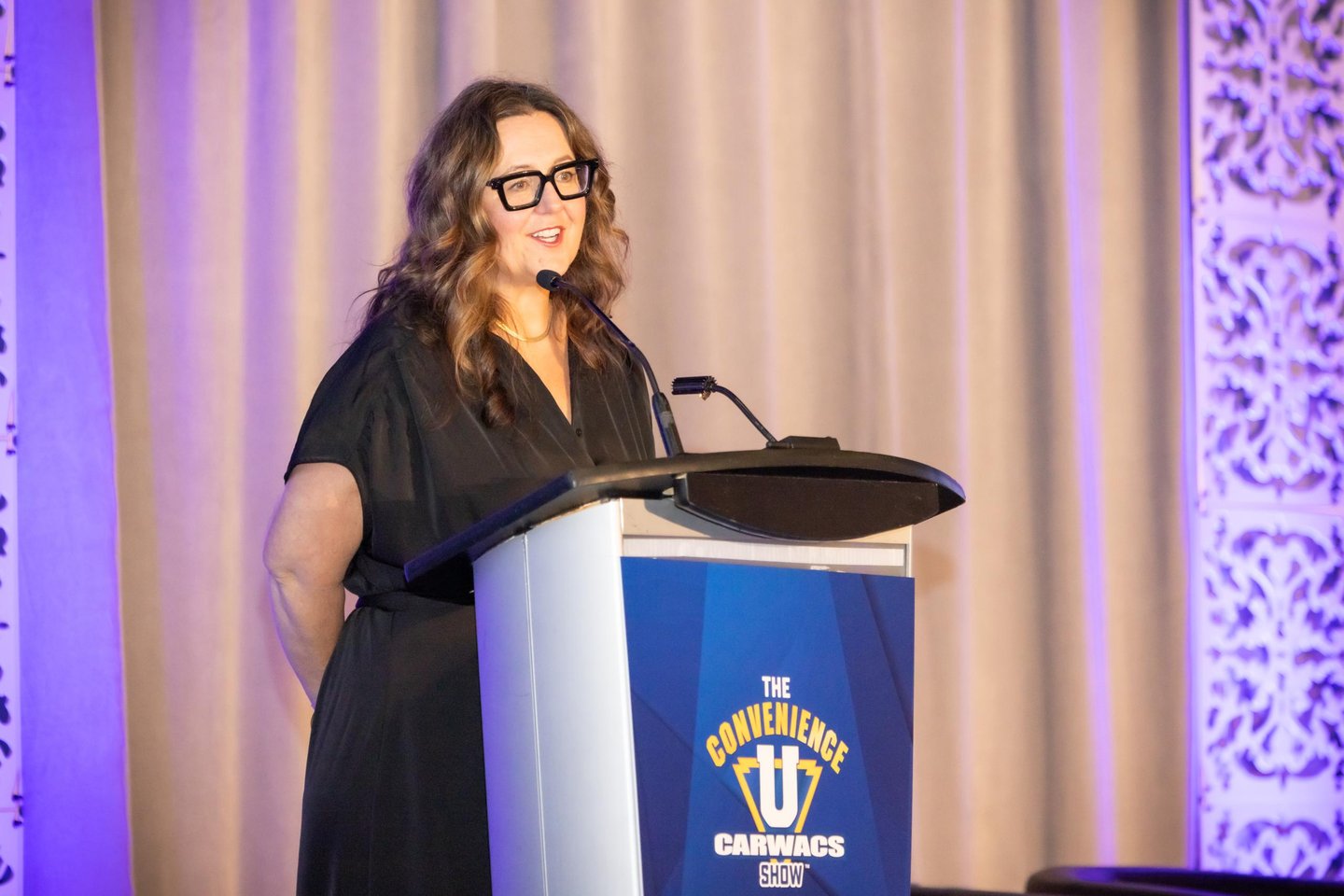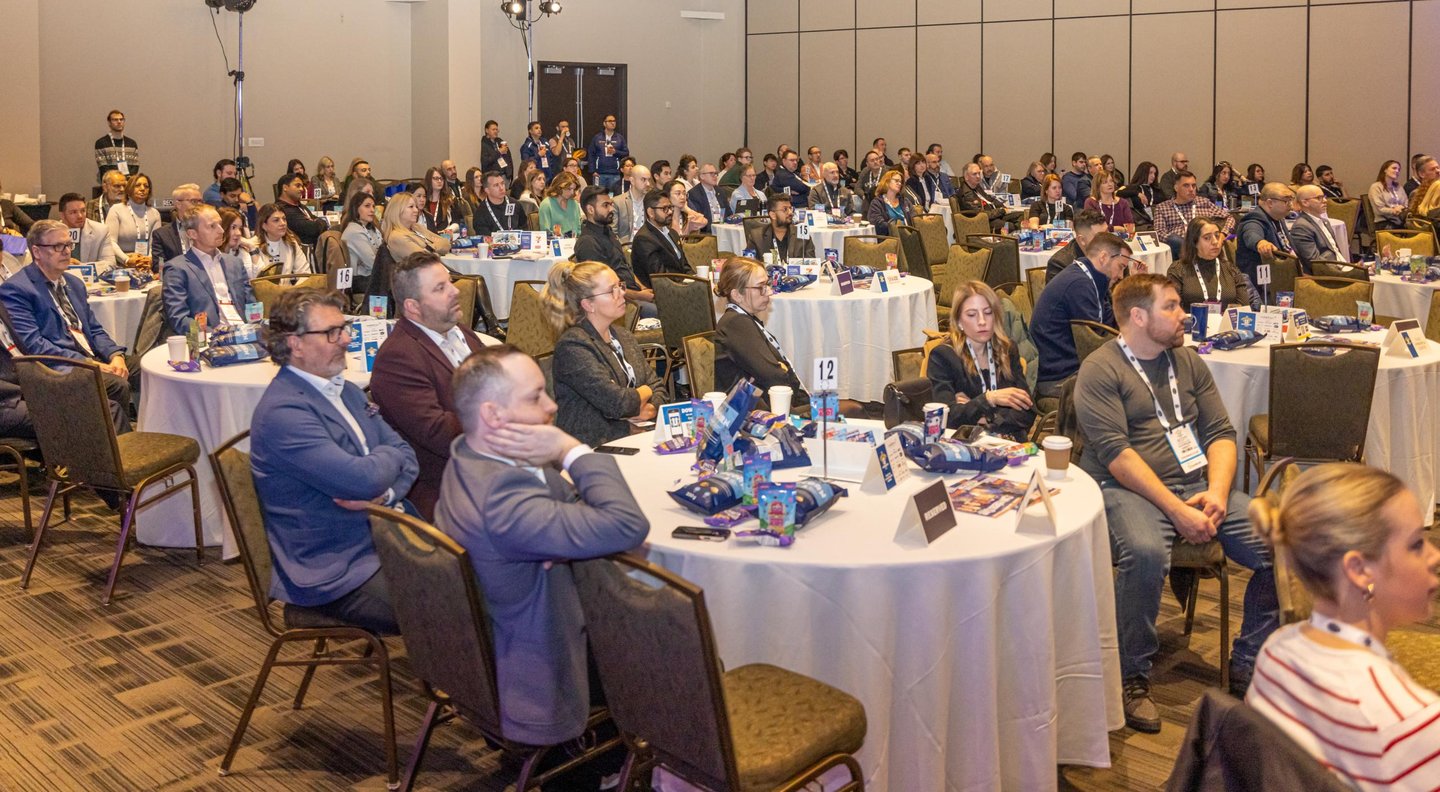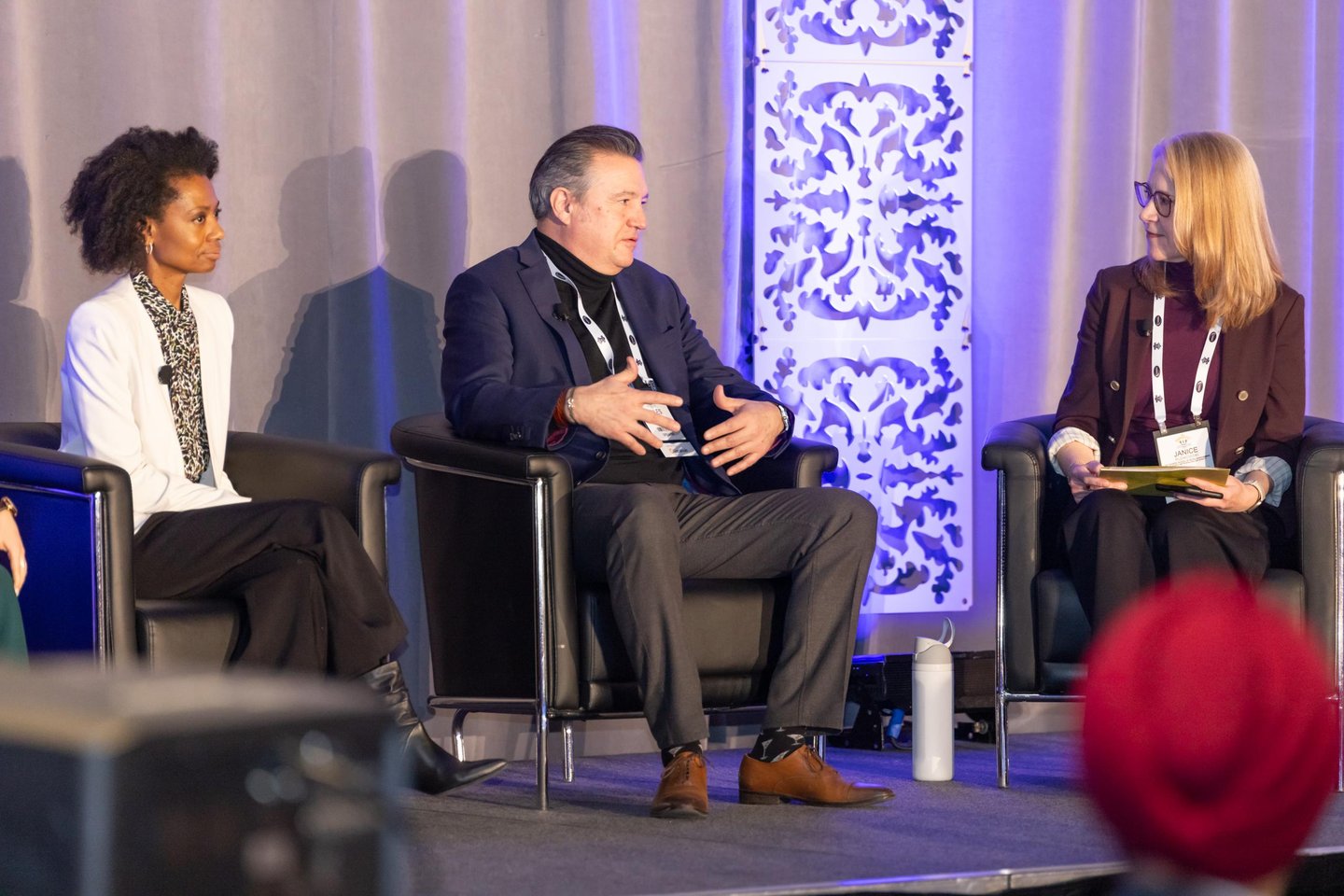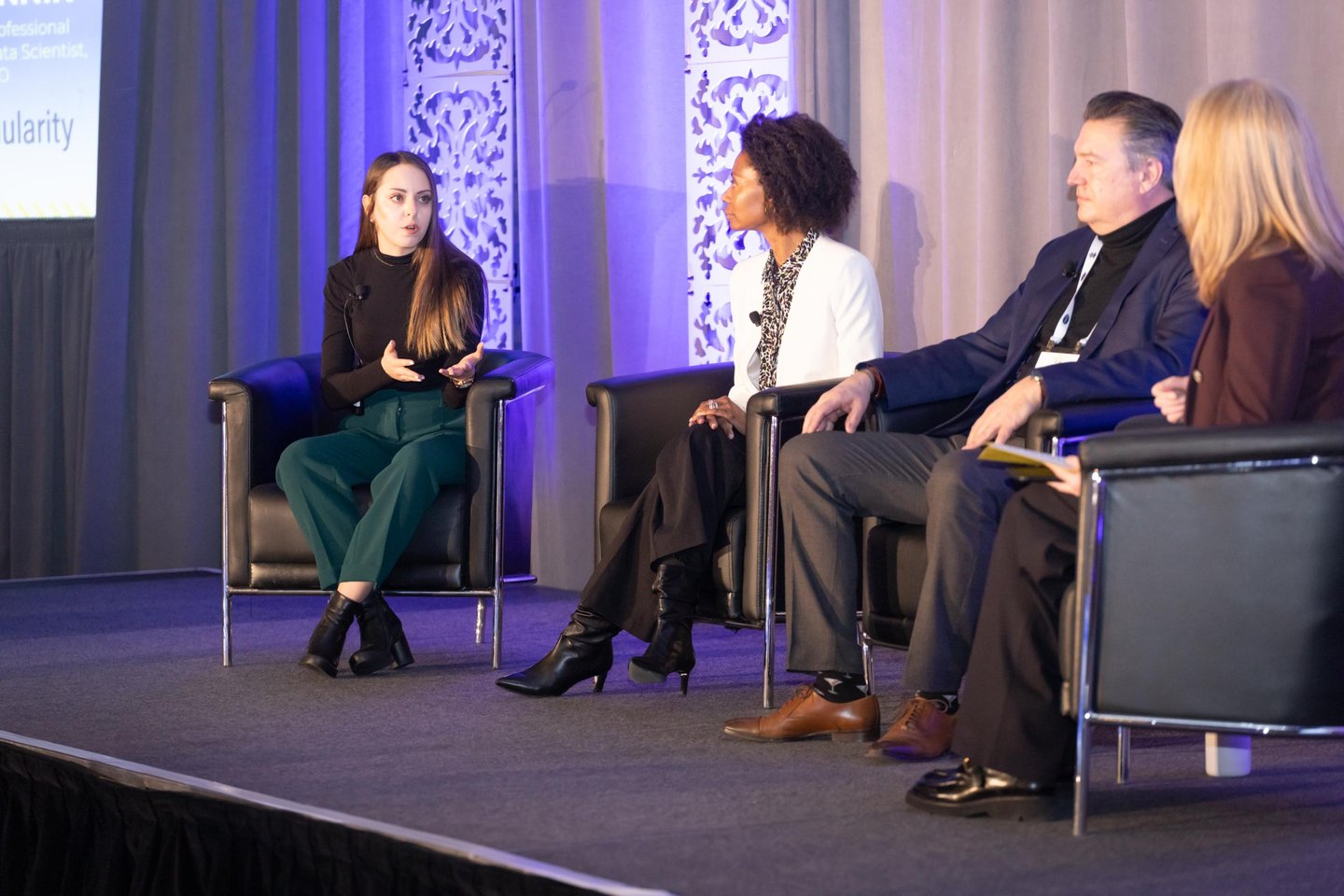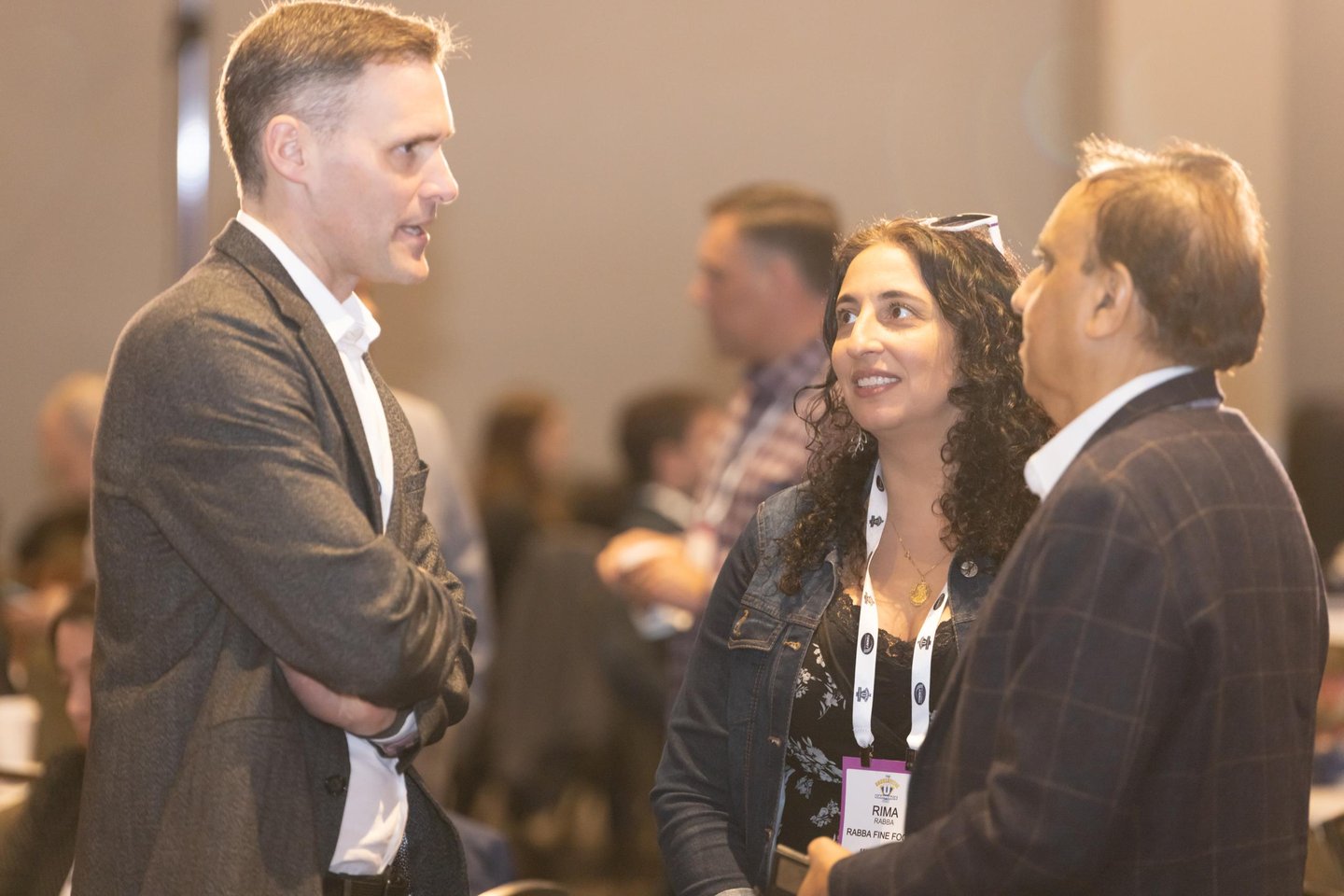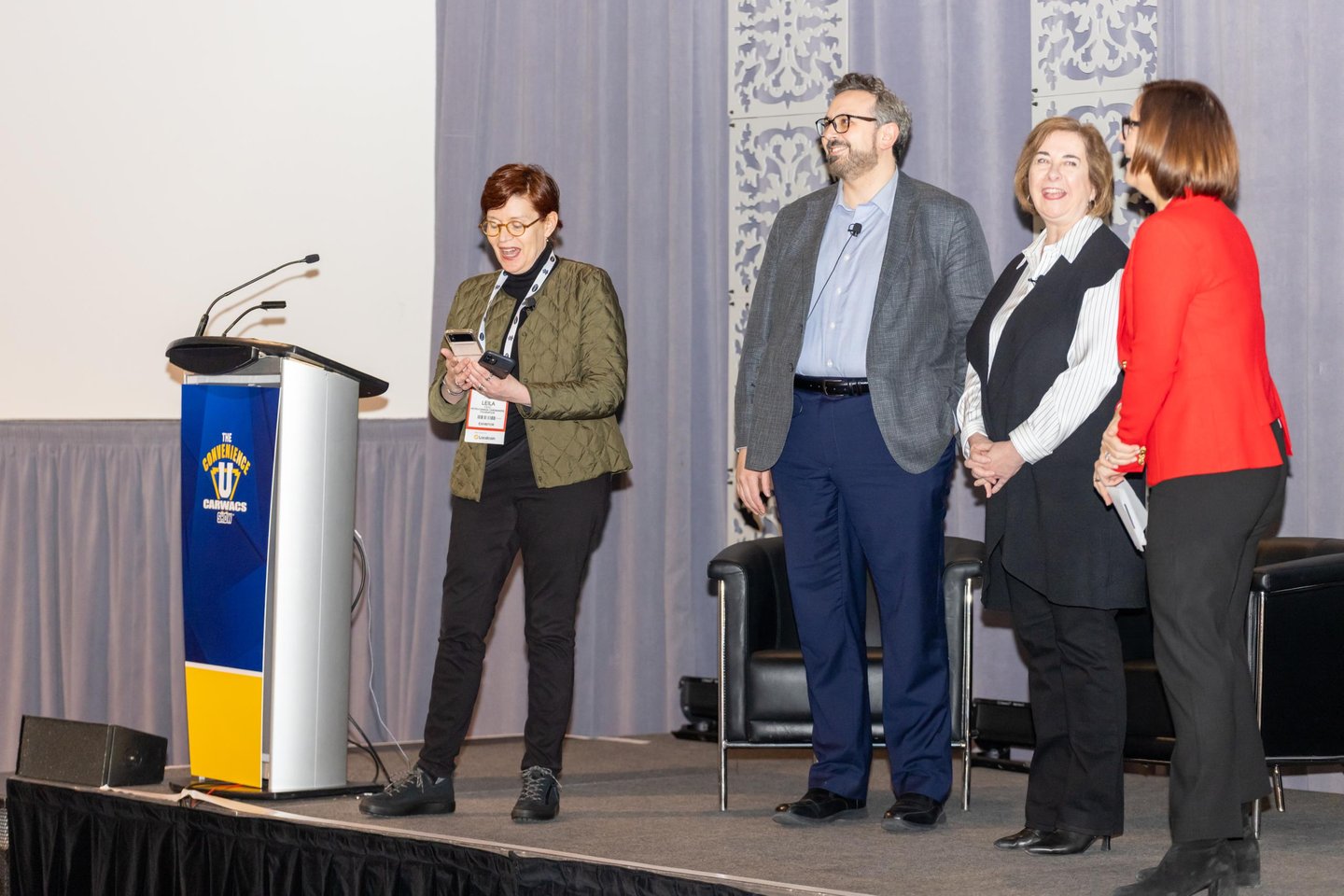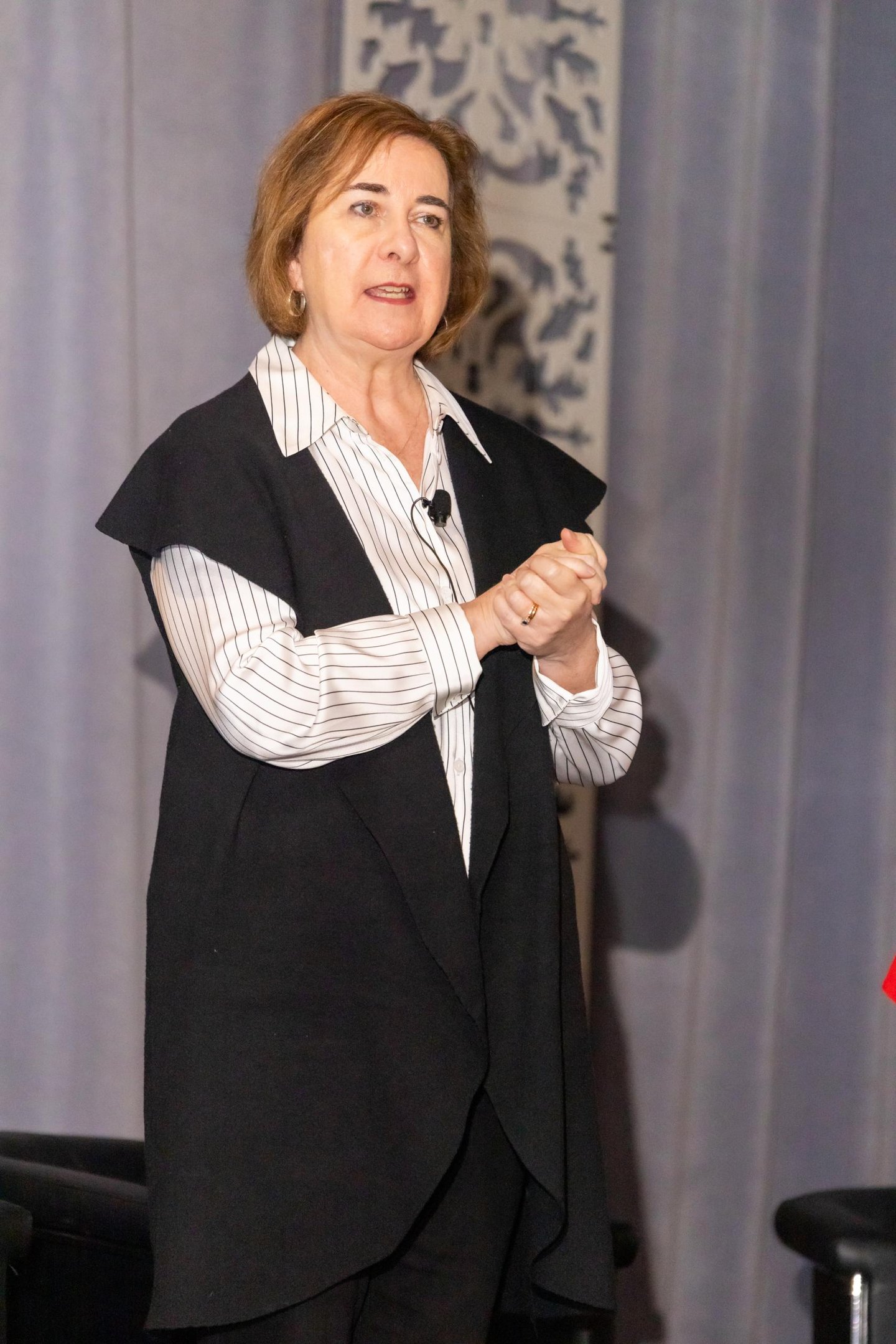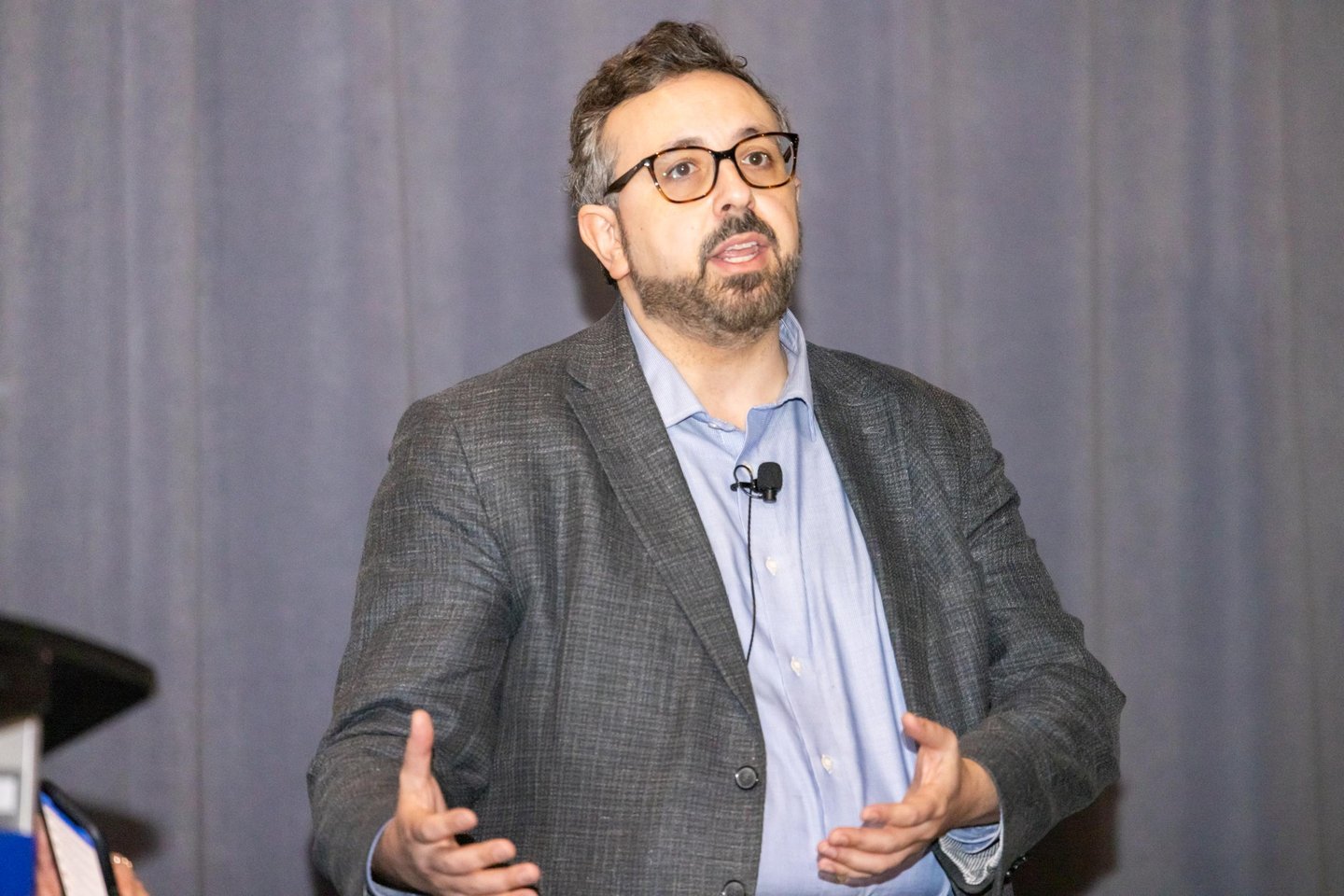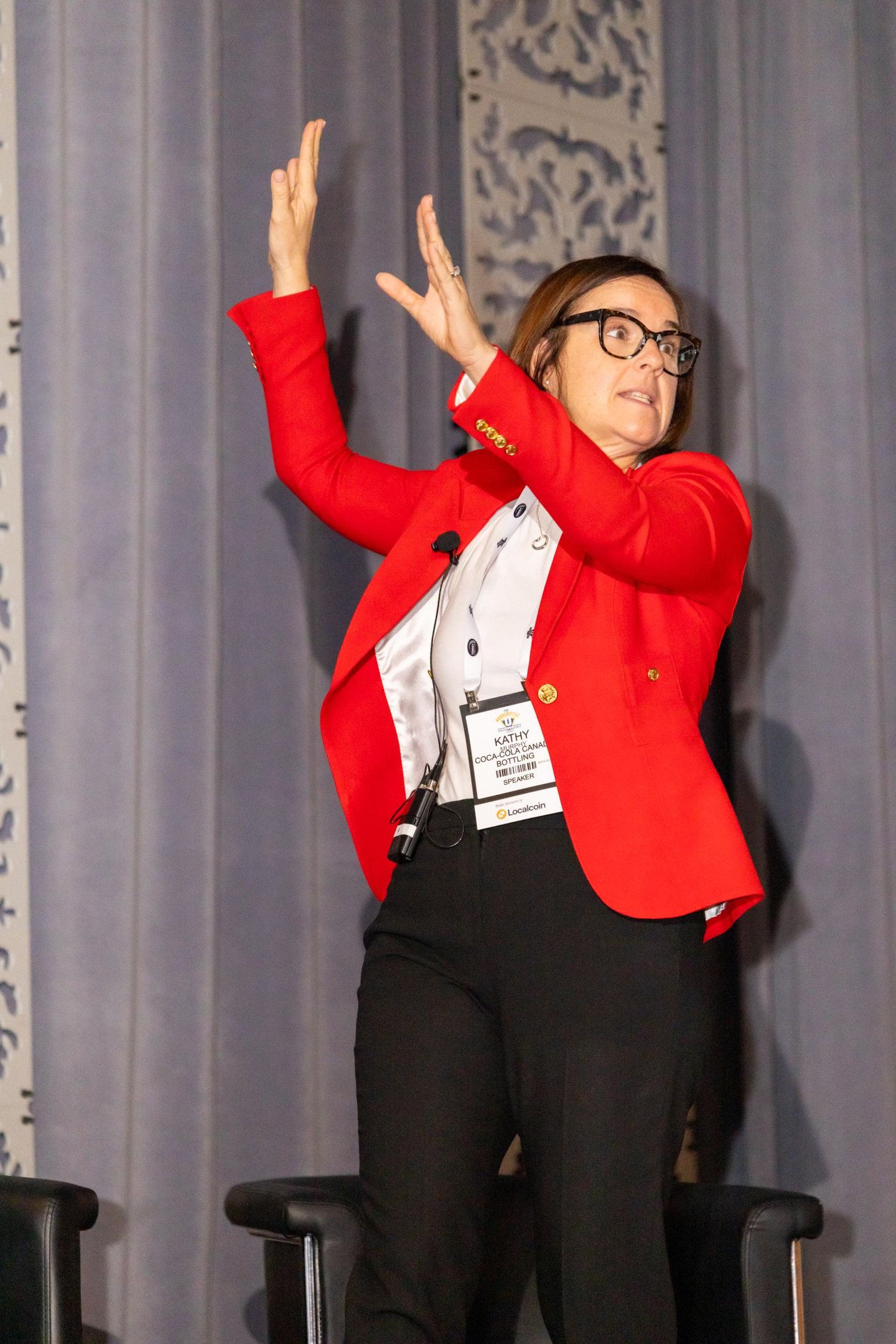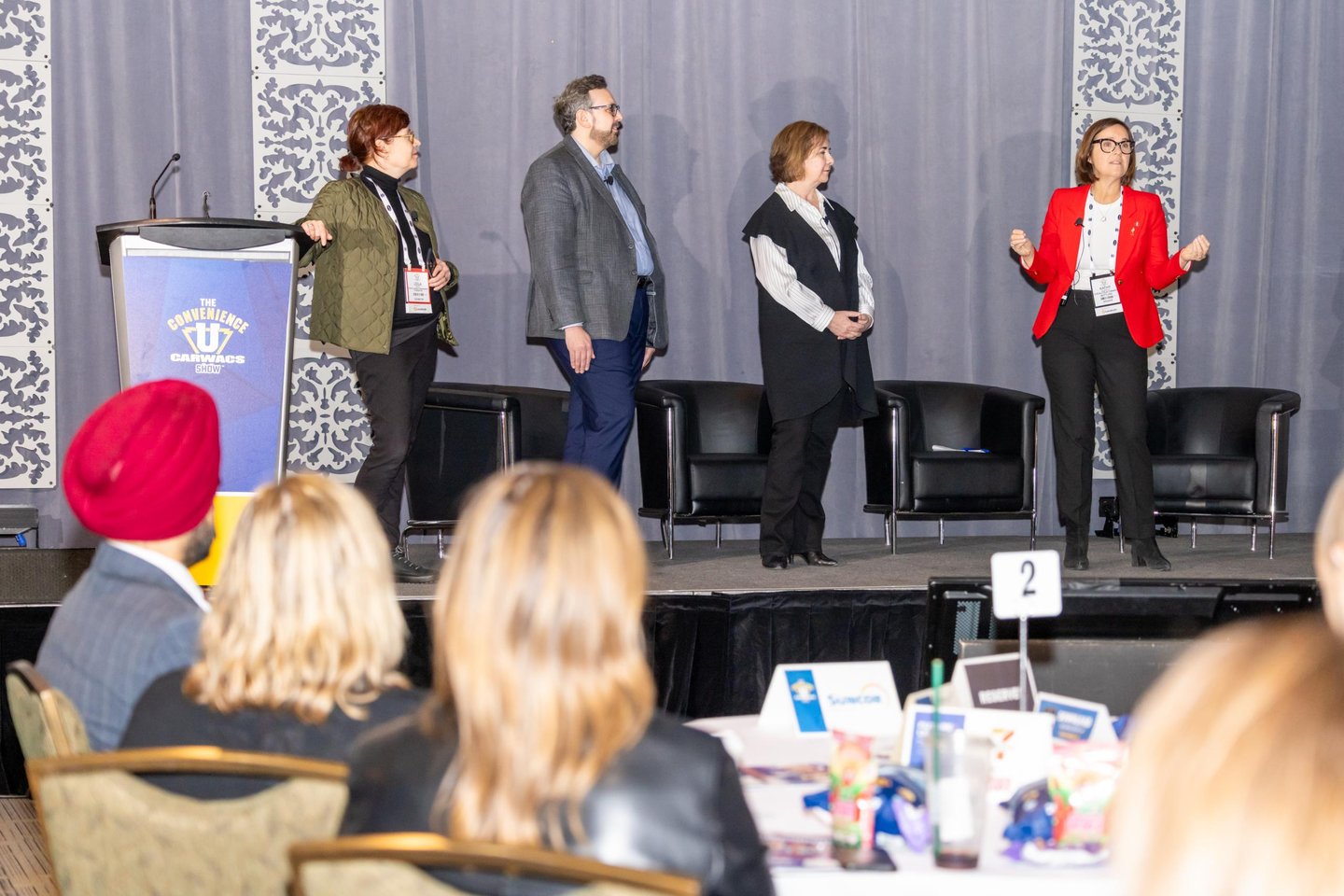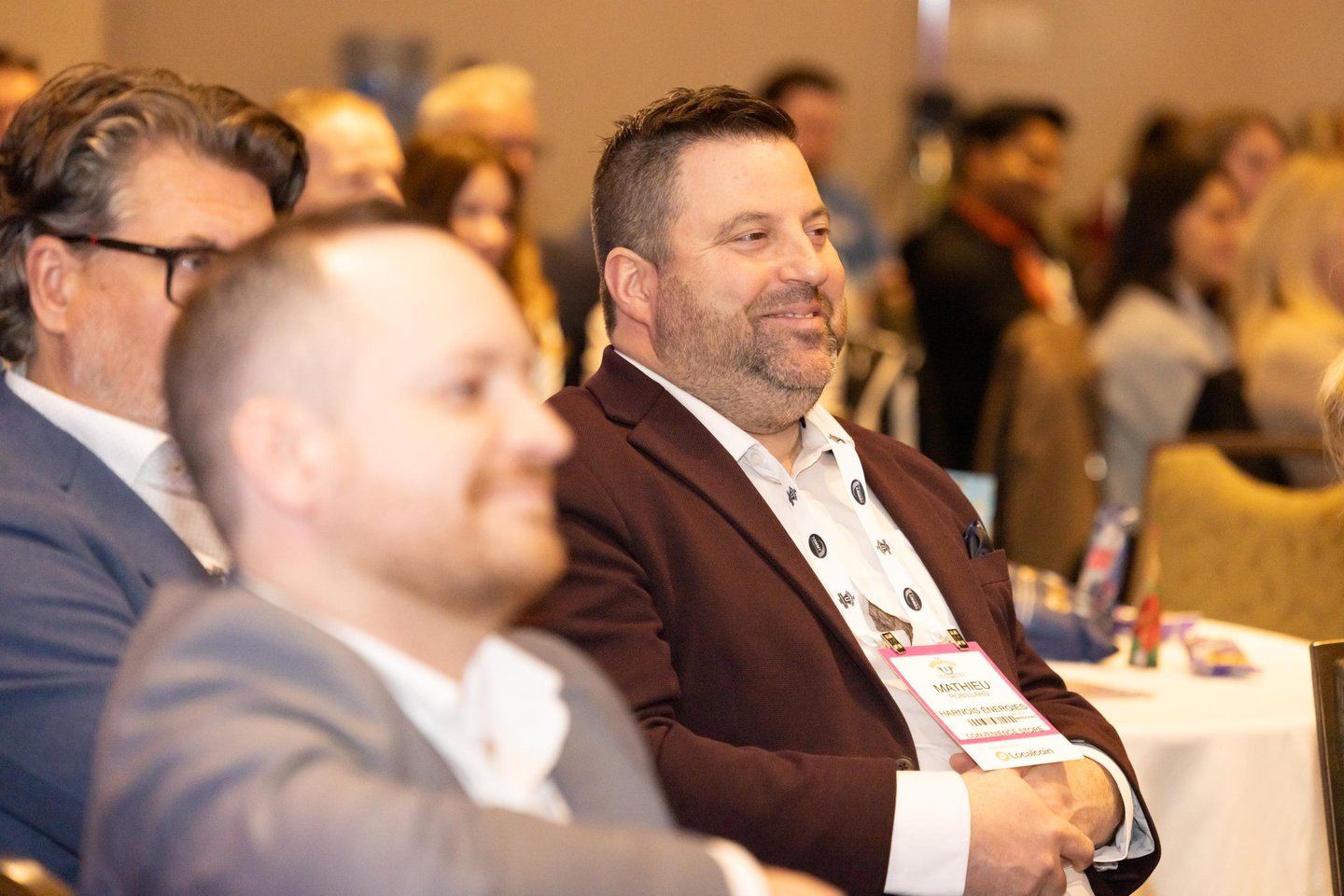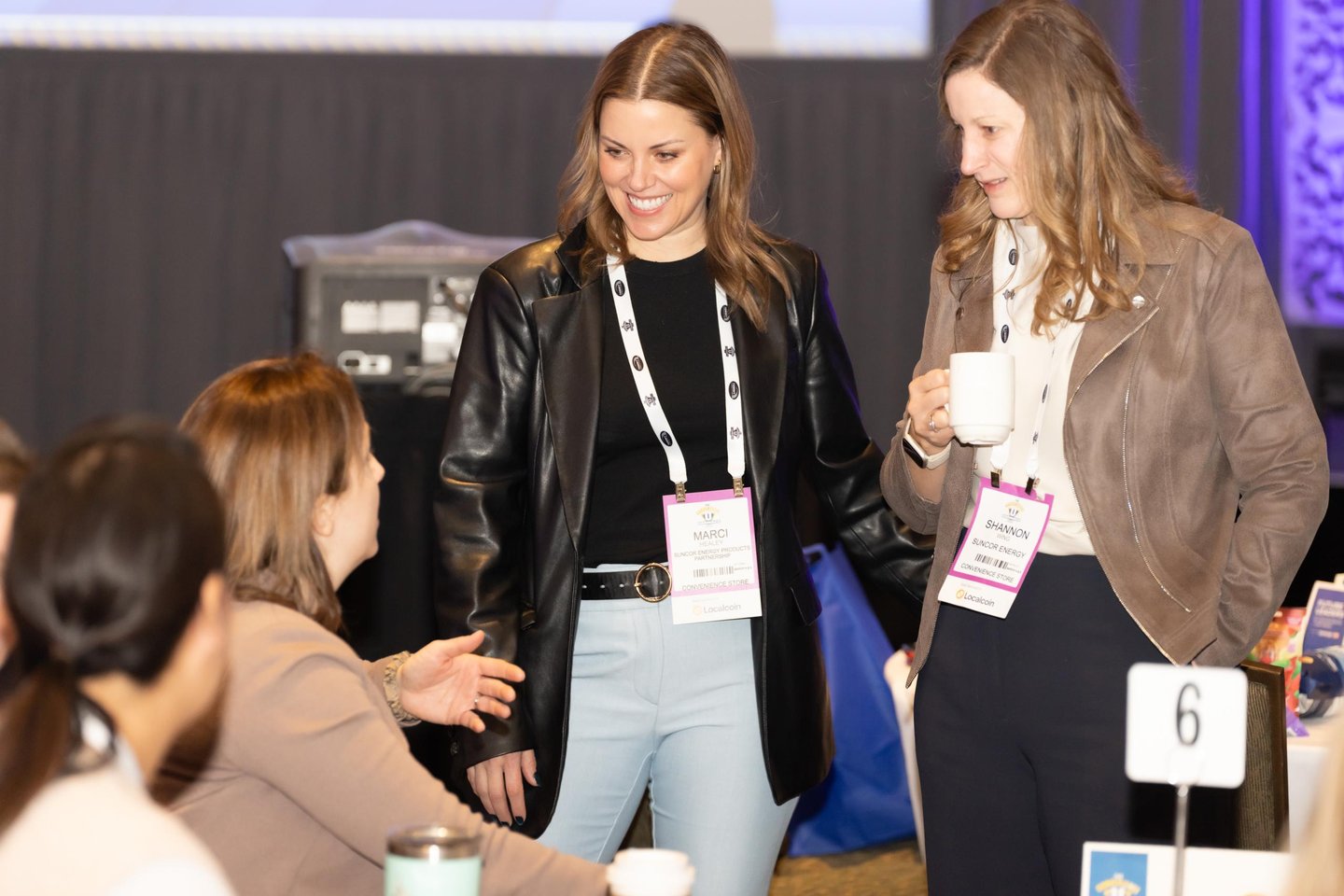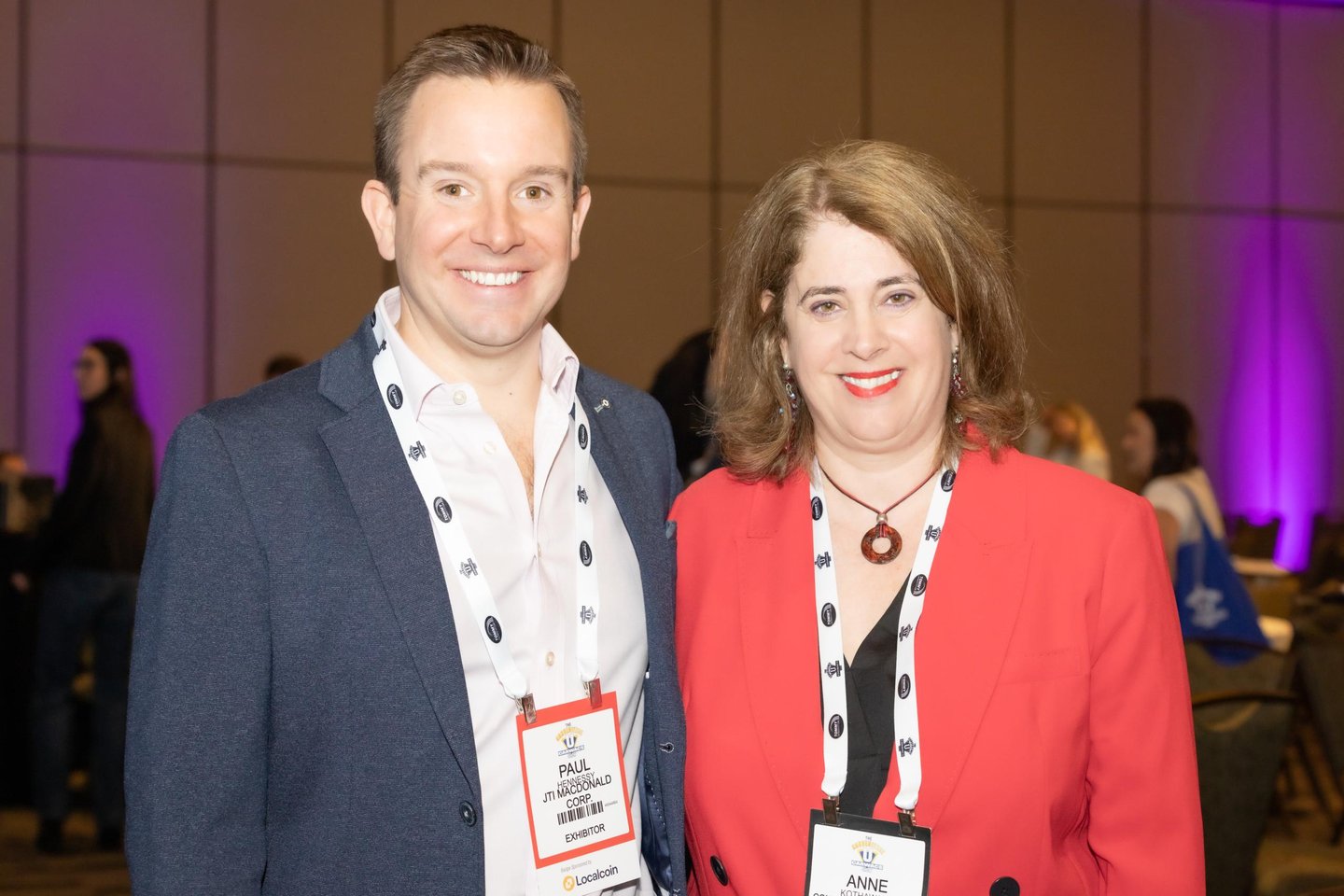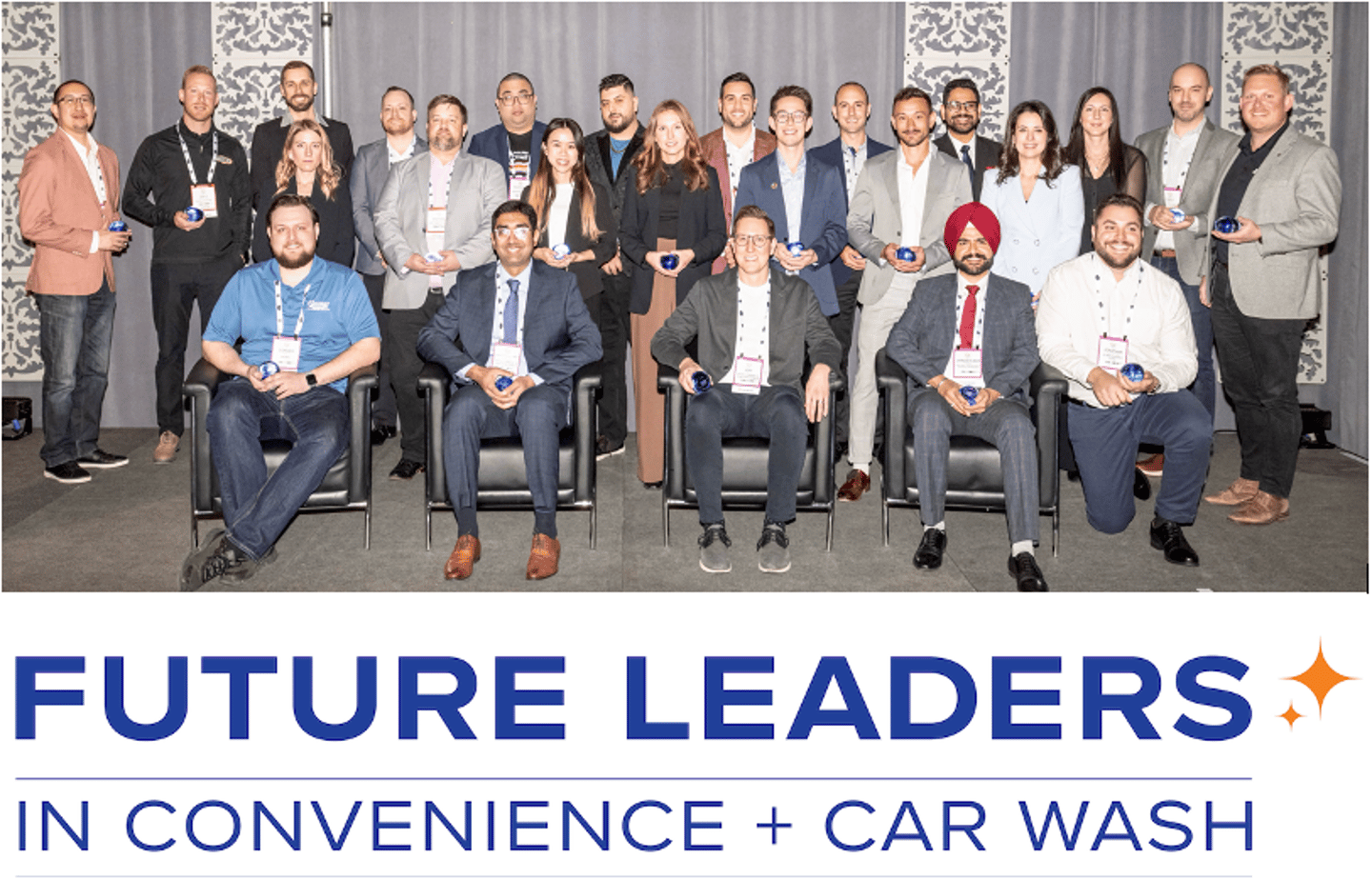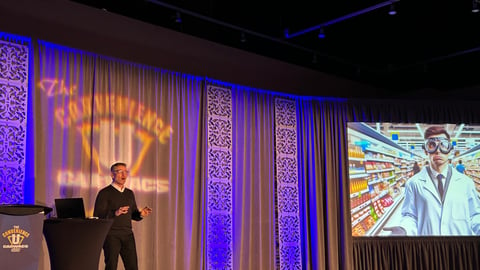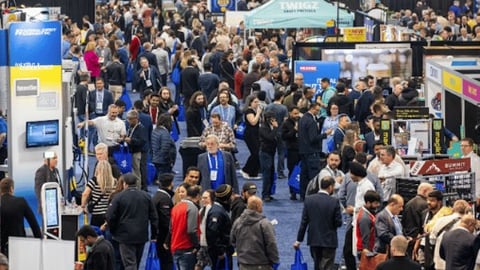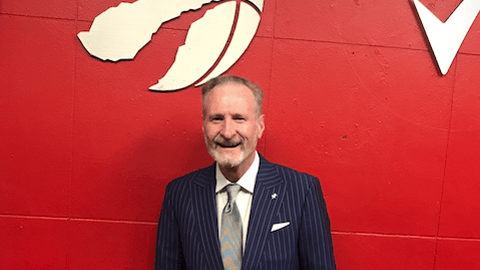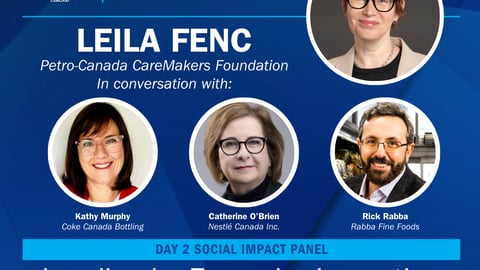PHOTO GALLERY: Day 2 of the 2025 Convenience U CARWACS focuses on AI, consumer confidence and community engagement
On the second day of the annual Convenience U CARWACS show at the International Centre in Toronto focused on how AI is changing the convenience business landscape and how tariff war between Canada, Mexico and the United States is adding to Canadian’s economic worries.
These sessions began with an opening keynote by Jack Armstrong, broadcaster-voice of the Raptors, coach and mentor on leadership and the importance of leaders building healthy and supportive relationships with teams.
He told the assembled guest that too many leaders forget they are in the ‘people business’, and today’s employee instead wants a relationship with their leaders. Leaders need to be mentors and role models and the old leadership style of being ‘a tyrant’ will not work. Nor will being a leader trying to lead from behind a wall of emails and electronic communications.
“To many leaders lead electronically,” Armstrong said. They hide behind e-mail, or by text. It is a gated mentality and there is a big difference between being a bridge builder or a builder of a wall. If you are a leader who leads electronically, with AI, you will be replaced. You need to get out there, meet people, talk with them and know them.”
Leaders need to work harder to engage with their employees, to engage with them and to make them excited about working for you, he added.
“We need more people committed to communications, to help people focus on getting results and you need to ask how are you going to mentor them, to build trust with them to reach that next level.”
Dr. Janice Rudkowski, assistant professor, Ted Rogers School of Retail Management, opened the AI & Technology panel by looking at the role of leadership in the rapidly evolving world of AI and how it is being used in day-to-day work.
Tali Remennik, Certified Professional Forecaster, Data Scientist, CEO, Granularity says what is exciting in AI is how it can help process millions of conversation and data-points and Leslie Gordon, director of proprietary brands, Circle K, AI has helped her crunch vast amounts of data and breaking it down into understandable data point, something that Myles Gooding, partner, global consumer markets advisory leader, PwC Canada agreed with.
Remennik said that many are now using external data outside of common sales data and merging that with AI to get past biases and blind spots when it comes to looking at what products are catching people’s attention and to catch new sales trends that may not be visible through traditional data analytics.
Circle K’s Gordon did say that while AI can be useful with combing through vast amounts of data, it is only useful if one knows what kinds of questions to ask of it. It is the old problem of ‘garbage-in-garbage-out’. It is important to know what questions to ask to better target the kinds of information that is important to your company and your customers, she added.
PwC Canada’s Gooding added that “AI can act as a fine-tuned comb to look at data and now with tariff we are using AI to help our clients disentangle supply chains and tariff issues to find opportunities going forward.”
Remennik says AI will be important to manage price changes and forecasting under the uncertainly that the newly announced tariffs will have on consumer prices.
And Circle K’s Gordon said that AI will also help in proprietary brands and products, by better identifying consumer trends, “either by launching an LTO to capture a trend or launching a longer-term product for a more long-lasting consumer trend. It also helps in looking at what competitors are doing such as asking what a fast-growing trend in chocolate is and maybe how the price changes in chocolate ingredients impact chocolate sales in the market.”
“Where do you see your organization is going and where do you see AI fit in that equation,” Gooding added. “It can become an enabler in terms of understanding what you are trying to achieve such as in your products, trends, what is happening with your supply chains. AI can fit into that.”
READ: Convenience U CARWACS show opens in Toronto highlighting industry growth and opportunities
Consumer sentiment and best business practices
Lisa Covens, senior vice-president with Leger, said that in December when President Donald Trump said the wanted to make Canada the 51st state, it did not go over well with Canadian, and some 85% said they are proud to be Canadians.
“When asked about their feelings on living in Canada, we found 55% said Canada is one of the best countries in which to live,” she said. “On the question of economic confidence, it is still low, even with lower interest rates, and many are not thrilled with their finances and going forward confidence is still soft.”
Covens said that 86% of Canadians are worried about the economy, focusing on their safety of their savings, investments, being able to pay bills and concerns if a household member becoming unemployed and credit card debt.
“Because of this, 54% of Canadian have put off major economic purchases,” she added. “And when we look at discretionary spending, it has not ticked up. And when it comes to tariffs, which not surprisingly is causing a lot of stress, and sentiment amongst Canadians and data from the beginning of February, 83% are concerned about tariffs, and that concern is even higher amongst women. And when we asked senior business leader, 84% said they were worried about tariffs.”
And because of tariffs more Canadians are saying they are cancelling U.S. vacation trips, buying more Canadian-made goods and even canceling such services as Netflix. More Canadian executives are also taking a closer look at their supply chains and looking to source more needed goods, services and materials from Canadian and non-U.S.-based sources, Covens said.
And despite a disruption in hydro that left thousands of area homes and businesses without power for several hours, the event continued, as speakers and attendees embraced an unplugged second half of the morning.
Leila Fenc, executive director of the Petro-Canada CareMakers Foundation, moderated a power panel with senior industry leaders on best practices for aligning social impact initiatives with business performance.
Rick Rabba, president of Rabba Fine Foods said that his family is proud of what Canada has given his family and the convenience industry where the family has found success.
“Our philosophy is to give back to the community that has supported us all these years,” he said. “All you must do as a convenience retail is to take that heart and what you do every day in your convenience business and just make it a bit bigger. We sponsor a Super Bowl event at a shelter here in Toronto and we worked with Coca-Cola recently to gather clothing for those there. Our store mangers tell me about organizations that help with their communities. There are a lot of things that you can do that are only a few steps from your door.”
Catherine O’Brien, senior vice-president, corporate affairs, regulatory, government relations and sustainability, Nestlé Canada said that “while our business and shareholders need to be happy, but we need to also make sure that our business is also in sync with our community.”
She mentioned the worked in helping cocoa farmers get access to hardier plants and support for their work and investing in their communities to help them grow and for the people to prosper.
“This is life-changing for those on the ground and for our business,” she added.
Kathy Murphy, viced-president of public affairs, Coke Canada Bottling said that company is only six-year-old, family-owned business, and said the central goal is to be a sustainable business and one embedded in the community.
Murphy said the company is working with communities across Canada to increase prosperity while reducing its impact on the environment and working with communities to hire young people and giving them opportunities to grow and to champion and local community initiatives.
All said their community engagement efforts also helps foster a healthier work environment as employees see the work they do—and that all of the businesses involve their employees in these efforts—as being more than a contribution to the bottom line.
The morning culminated with the presentation of the 2025 Future Leaders in Convenience and Car Wash Awards.


